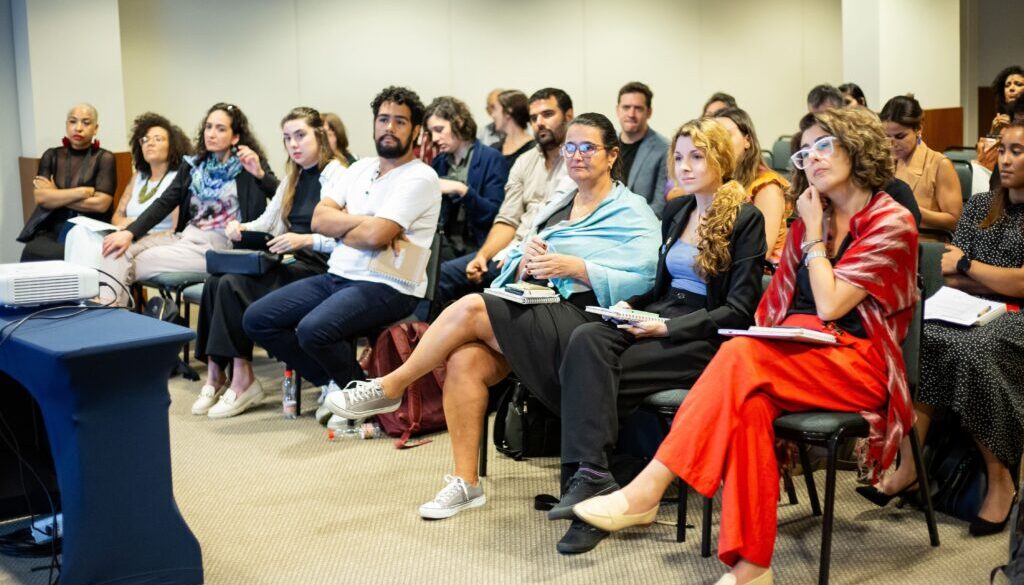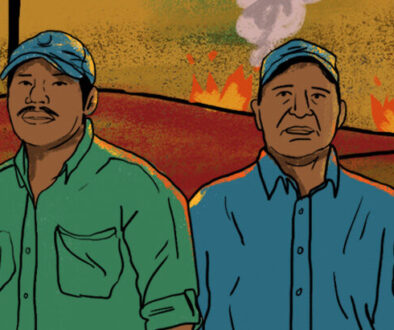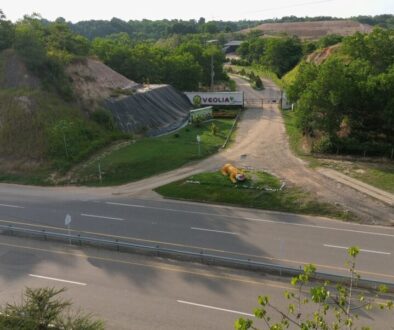A Just Climate Transition – The Missing Human Rights Component
In a world increasingly threatened by climate change, the urgency of a just and inclusive transition to sustainable energy systems is more pressing than ever. However, these debates often overlook the links between human rights and climate justice. To address this gap, on October 2 in Rio de Janeiro, Asuntos del Sur, in collaboration with the International Development Research Centre (IDRC) and the E+ Energy Transition Institute, organized the T-20 side event “Global Perspectives on the (missing) Human Rights Component of a Just Climate Transition”.
This event was part of the broader initiative, the Knowledge Alliance for Environmental Defenders (KALLIED), led by Asuntos del Sur and supported by the IDRC under the cohort «Reclaiming Civic Space to Confront the Climate Emergency» in the Global South. Kallied brings together diverse voices from Africa, Latin America, the Middle East, and Southeast Asia to focus on the struggles of climate defenders, social movements, and impacted communities.
📹 Don’t miss a recap video from the side event, click here.
Event goals and achievements
Exploring key issues at the intersection of climate justice and human rights, and offering valuable insights from across the Global South, helps us better understand the threats we face. The current shrinking of civic space in many countries poses unprecedented challenges to climate and environmental defenders worldwide. This event explored these threats, their root causes, and effective strategies for civil society to respond.
A second important objective was to promote equity and inclusion in such debates. A just climate transition must emphasize not only emission reductions but also gender equality and social inclusion. The event highlighted the importance of creating opportunities for marginalized communities through access to green jobs and training. Participants also discussed fostering cross-movement alliances, highlighting how environmental defenders can work with other social movements to counter shrinking civic spaces and build stronger, more resilient networks to advocate for human rights in climate policy.
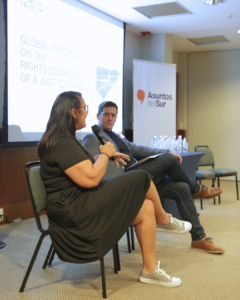
Finally, this T20 Brazil side event aimed to highlight the perspectives of the Global South, amplify these voices in global policy discussions, and ensure that the needs and rights of communities disproportionately affected by climate change are heard and addressed.
The event opened with welcome remarks by Rosana Santos of E+ Energy Transition, Adrian Di Giovanni of IDRC, and Matías Bianchi of Asuntos del Sur, followed by the keynote speaker, Andressa Caldas from the Mercosur Institute for Public Policy on Human Rights.
Session 1: The Role of Environmental Defenders in a Just Transition
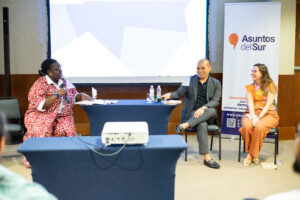 The first session focused on the role of environmental defenders in achieving a just and rights-compliant transition. This session showed the complexity of defending environmental rights in an increasingly hostile environment and highlighted the importance of resilience and solidarity among defenders. Mark Ambay of the Asia Pacific Network of Environmental Defenders (APNED) and Maria Beatriz Peixoto Mello of the Brazilian Socio-Environmental Platform shared their experiences and discussed the critical role that defenders play in protecting ecosystems and vulnerable populations. The panel, moderated by Eunice Nsikak (Minority Rights Group Africa), provided a platform for representatives from different regions to share insights on how defenders can protect their communities despite growing threats.
The first session focused on the role of environmental defenders in achieving a just and rights-compliant transition. This session showed the complexity of defending environmental rights in an increasingly hostile environment and highlighted the importance of resilience and solidarity among defenders. Mark Ambay of the Asia Pacific Network of Environmental Defenders (APNED) and Maria Beatriz Peixoto Mello of the Brazilian Socio-Environmental Platform shared their experiences and discussed the critical role that defenders play in protecting ecosystems and vulnerable populations. The panel, moderated by Eunice Nsikak (Minority Rights Group Africa), provided a platform for representatives from different regions to share insights on how defenders can protect their communities despite growing threats.
Group discussions on TF2 recommendations.
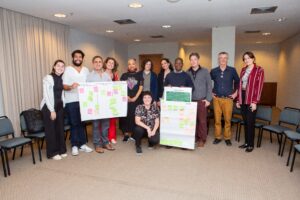 After the first session, participants engaged in small group discussions to improve the Task Force 2 (TF2) recommendations to integrate them with a human rights approach. These thematic dialogues addressed several dimensions, including the decentralization of supply chains to redistribute production and income opportunities in the Global South. Global governance reform and enhanced multistakeholder participation were seen as essential to ensure that the energy and climate transition can benefit historically marginalized communities.
After the first session, participants engaged in small group discussions to improve the Task Force 2 (TF2) recommendations to integrate them with a human rights approach. These thematic dialogues addressed several dimensions, including the decentralization of supply chains to redistribute production and income opportunities in the Global South. Global governance reform and enhanced multistakeholder participation were seen as essential to ensure that the energy and climate transition can benefit historically marginalized communities.
Session 2: Advancing a Human Rights-Based Transition
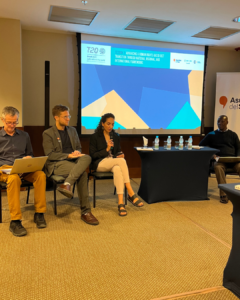
This session focused on institutional frameworks for promoting just transition based on human rights at the national, regional, and international levels. Julia Choucair of the Arab Reform Initiative moderated the panel, which included Francis Colee (Green Advocates International, Liberia), José Aylwin (Observatorio Ciudadano, Chile), and Eduardo Avila (Revolusolar, Brazil). Panelists explored how local and global institutions can strengthen the protection of climate defenders and vulnerable populations while promoting sustainable energy policies.
Concluding work in groups on TF2 recommendations

During the final segment of the event, participants reconvened in working groups to complete the work begun in the previous session to further strengthen the recommendations of Task Force 2 (TF2). This collaborative effort aimed to identify concrete actions and key actors capable of implementing the human rights dimensions discussed earlier in the day. Participants delved into the practicalities of translating the insights and strategies from the morning sessions into actionable frameworks. By focusing on specific actors – from policymakers to grassroots organizations – the two groups sought to ensure that proposed human rights-based climate policies could be effectively implemented at both the local and global levels. The session emphasized the importance of coordination and accountability in achieving a just and inclusive climate transition.
Strengthening global networks
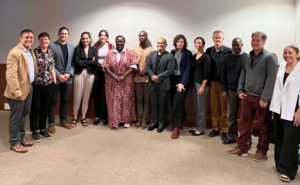
![]()
![]() The event succeeded in fostering a collaborative network of organizations, activists and policymakers that went beyond research to cultivate action. By building this global community of practice, the event worked together to increase the impact of human rights agendas on climate policy and promote a just and inclusive global transition.
The event succeeded in fostering a collaborative network of organizations, activists and policymakers that went beyond research to cultivate action. By building this global community of practice, the event worked together to increase the impact of human rights agendas on climate policy and promote a just and inclusive global transition.
By integrating insights from the Global South, this initiative laid the groundwork for stronger policies that address both environmental and human needs in a just climate.
If you want more details and to see the complete side event, we share with you the link here.


